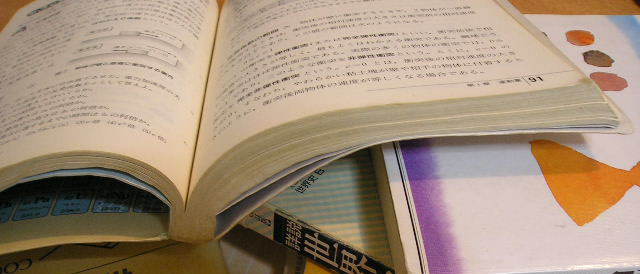As a freshman I was very quickly introduced to the extreme cost of books. My first semester the cost was right around $450, which caught me so very off guard. How could these books cost that much? For many of us I am sure we would be happy to pay what we needed if we could see a cost breakdown of what our money gets us. But here at college we do not get the nice breakdown of parts and labor cost like you do at a mechanic’s garage, we instead get nice flowcharts that tell us that we need up to and beyond a hundred credits at a price of around $400 to $600 depending on if you are taking a minimum of 12 or 18 credits, respectively. That does not include prices per credit if you take less or more than the defined range of credits. Again, this was only a discussion of tuition; this does not delve into the mire that is on campus housing.
In the discussion of books, I would like to state that someone along the production line is making money — the real question is who? I looked for information on the cost of books and found a 2015 article published on the ATTN website where the writer had a chance to interview Ethan Senack who is a federal higher education advocate for U.S. public Interest Research Group. The article also showed a graph of the percentage increase in the cost of educational textbooks since 1978 which indicated an 812 percent increase. That amount is staggering and is exactly why we are seeing textbooks that cost $200 or more on top of tuition, housing, lab fees and any extra required fees like ridiculous $38 online courses — the course is already cutting costs by requiring less cost on fuel for heating, electricity for lighting and janitorial fees for supplying a clean learning environment.
The real cost of a textbook is because the publishing market for textbooks exists with just five publishers and they are able to price fix extremely well due to the lack of competition in the open market. This allows them to jack up the price and to take more than 77 cents of every dollar spent for the textbook. Only 12 cents goes to the actual author of the materials. Additionally, some texts, quite a few around Tech it seems, come packaged with online resources that tend to inflate the cost even further, even when the professor has no intention of using the materials for their instruction. Yes, the student can use the access to further their own education but we should at least have the option of divorcing the online materials from the cost of the hardcover books to reduce the upfront cost of the educational text.
There is yet hope though, open textbooks are growing in popularity and give an alternative to both professors and to students looking to use free resources for education. Look up the Open Textbook Catalog online and see if any of your classes have an available text. Also check out the library; many times they offer books for borrowing if you need to get your homework done. All in all I do think textbooks and related online materials are a scam that have created a feedback loop within the college communities.


